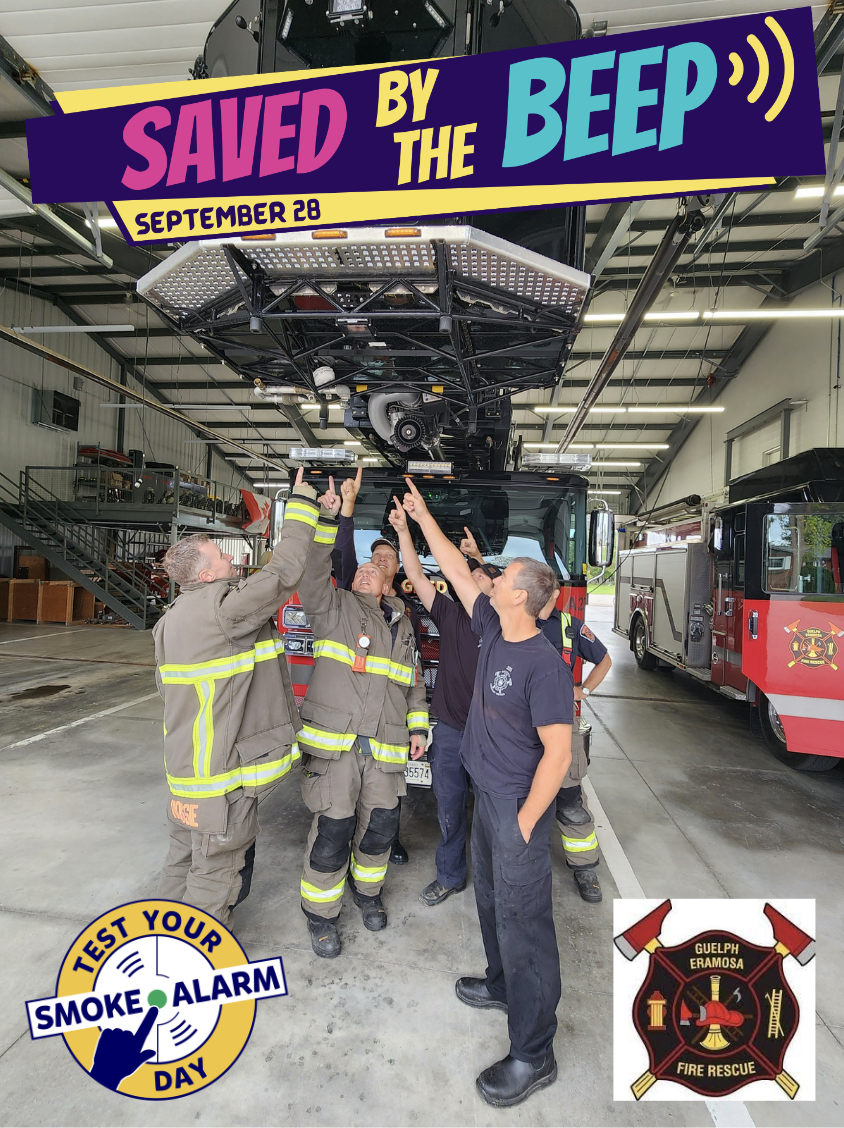GUELPH/ERAMOSA – Fires in rural areas differ from those in cities, but knowing prevention and safety measures can make dangerous situations manageable.
The Guelph/Eramosa Fire Department educates the public on fire safety and prevention through programs and station visits.
“There is a direct correlation to fatal fires with homes that don’t have working smoke alarms and that’s where we want to place that emphasis,” fire prevention officer Mathew Williamson told the Advertiser in an interview.
Williamson shared tips related to barn fires and how to prevent them.
“The manner in which we store combustibles and having an over accumulation of combustibles – so if things don’t need to be stored in a barn to keep them dry, then perhaps looking into outside storage,” noted Williamson.
The department also encourages farm owners to not permit smoking in or near their barns.
Housekeeping is also an important part of preventing a fire.
Williamson noted service rooms with electrical or heating equipment should have limited storage. And items like space heaters should be kept clear of any possible ignition sources.
“Simple things like cobwebs on the ceiling or in the rafters of a barn, those things can contribute to fire spread should there be a fire,” he said.
Farm owners should ensure electrical work in a barn is installed by a licensed and qualified electrician to minimize the chances of electrical-related fires.
“The number one thing in a rural home environment would be having working smoke and carbon monoxide alarms and making sure they are functional on each floor level and that they’ve been tested,” he stated.
Williamson recommends changing the batteries on smoke alarms twice a year and always testing them afterwards.
“Another rule is if they’ve (alarms) been tampered, altered or removed that they (homeowners) test it at that time,” he noted.
Although house fires are “tragic,” Williamson is more concerned about human life, stating, “our best-case scenario is that everyone is out, standing at the road allowance when we arrive.”
Rural homes tend to supplement heating using wood stoves, which can increase the likelihood of a fire, he added.
Older buildings run the risk of having a buildup of creosote in chimneys. Creosote is a black tar-like substance that forms inside a chimney when smoke doesn’t entirely escape.
The build-up can cause chimney fires, leading to house fires.
Williamson recommends having a qualified contractor clean the insides of a chimney and getting an annual inspection.
“Anytime you have a solid fuel burning appliance such as a wood stove, pellet stove or a gas furnace, it would require you to have carbon monoxide alarms,” he noted.
Some smoke alarms can also detect the threat of carbon monoxide poisoning, but some only detect smoke.
“Any solid fuel can emit carbon monoxide and as we know they call it the silent killer; you can’t see it, can’t smell it, you cannot taste it, so you need to have working carbon monoxide alarms,” Williamson said.
He explained homeowners with detached garages often forget the safety measures that go along with them.
Instances have occurred where vehicles have been left running, emitting carbon monoxide without being detected, due to no alarm in the garage, stated Williamson.
“You should always be considering budgeting and forecasting for the replacement of both smoke and carbon monoxide alarms,” he said.
A celebration of Fire Prevention Week will occur on Oct. 12 from 10am to 2:30pm at the West End Community Centre on 21 Imperial Road in Guelph.
The Guelph Fire Department and the Guelph/Eramosa Fire Department will be joining together for the event.
Participants will be able to learn how to use a fire extinguisher, tour fire trucks, play in inflatable fire safety houses, meet Sparky the fire dog and more.
Those interested in learning more about fire safety and prevention can visit the township’s website at get.on.ca.



